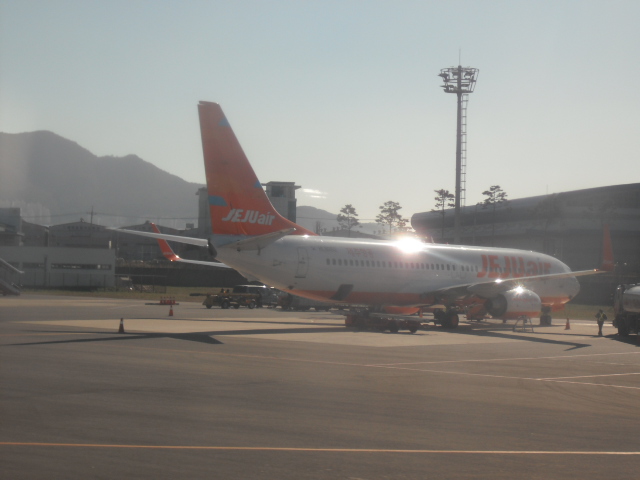Report by : Gan Yung Chyan
/ KUCINTA SETIA
Distributed to All Press & Travel Professionals
/ KUCINTA SETIA
Distributed to All Press & Travel Professionals
Jeju Air, Korea's largest low-cost airline founded in 2005, has been plagued by safety lapses in recent months, inconveniencing thousands of customers, although it has been mobilizing resources to expand routes and attract as many travelers as possible to compete with Korean Air, Asiana Airlines, Jin Air, EastarJet, Air Busan and T'Way Air despite a recent brand image refresh after a proposed investment deal with Singapore Airlines was scrapped by the latter in November 2015.
However, Jeju Air has focused less attention on strengthening the operational safety of its fleet and the training of pilots and other crew members. Industrial analysts in South Korea caution that if Jeju Air, headed by CEO Choi Kyu-nam, continues to expand its route network by operating its aging airplanes excessively, it will likely be involved in serious accidents in 2016. On 23 December 2015, a Jeju Air's Boeing 737-800 aircraft bound for Jeju from Seoul (Gimpo) suddenly nosedived, sending 152 passengers into panic, with dozens sustaining injuries. The plane plunged 3,000 meters in seconds. Initially, the malfunctioning of the self-pressurized system was believed to be the cause of the sudden plunge. However, after an initial inspection of the plane, the Ministry of Land, Infrastructure and Transport said inspectors found no mechanical problem, suspecting pilot error was behind the latest incident. "If pilot error is confirmed to be the cause of the incident, then Jeju Air has failed to adequately train its aviators. Pilots, maintenance crews and other personnel at Jeju Air are overworked to keep up with the firm's busy flight schedules. Everything has been stretched thin. Other budget carriers face the same problem," said an airline industry official, who declined to be named. Jeju Air operates a fleet of 22 Boeing 737-800 aircraft, flying to 26 destinations in China, Taiwan, Hong Kong, Japan, Guam, Thailand, Vietnam and the Philippines. It also runs four domestic routes to Jeju, Daegu, Cheongju and Busan from Gimpo. It has been adding four to five routes a year and hiring dozens of pilots to maintain rapid route network expansion. Besides pilot errors, Jeju Air's aging planes are said to have caused numerous flight delays and cancellations. The aircraft involved in the 23 December incident was manufactured in 2008. Worse, 16 other planes were produced before 2008, with two manufactured in 1999. "Jeju's aging fleet has been causing a wide range of incidents over the past few years," the official said. "The carrier knows that it needs to add new planes to its fleet. But it costs more to do so. If it cannot afford to lease new planes, it instead has to beef up its safety inspections. This could make fewer planes available for operation." On 20 December 2015, a Jeju Air flight bound for Busan from Guam was delayed for 15 hours because of defective parts, while an aircraft bound for Incheon from Bangkok had to return to Thailand after two hours in the air on 5 December 2015 due to a part flaw. In addition, Jeju Air is widely expected to face stiff competition from Air Seoul, Asiana Airlines' second budget carrier formed on 29 December 2015, which will begin operations at the latest by June 2016. Air Seoul, which will operate on Asiana's short-distance routes from Gimpo to destinations in China, Sungshan in Taiwan, Japan and from Incheon to Hanoi, Vientiane, Ho Chi Minh City, Suvarnabhumi, Chiang Mai, Phnom Penh, Manila using Airbus A321 aircraft leased from Asiana Airlines, will likely turn Korea's highly competitive LCC market even more aggressive. The budget carrier will likely bite into the bottom lines of Jeju Air, Jin Air, EastarJet and T'Way Air.
Air Seoul is the Gimpo-based sister budget carrier of Air Busan, Asiana Airlines' first budget airline subsidiary headquartered in the South Korean port city of Busan.
|





No comments:
Post a Comment